



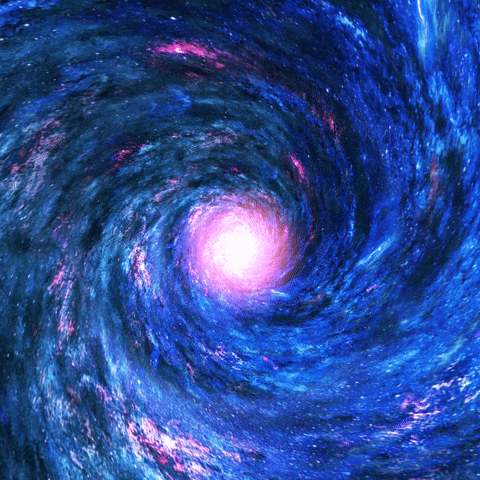
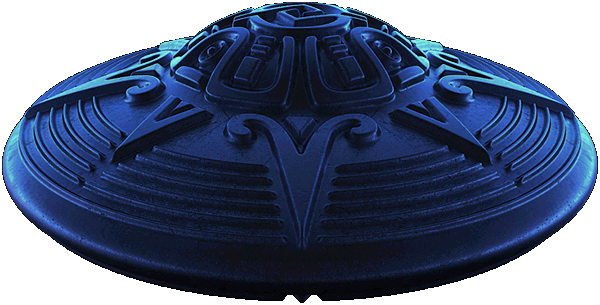

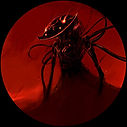
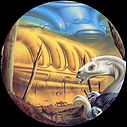



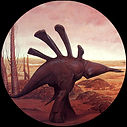


The X-Files is an American science fiction drama television series created by Chris Carter. The original series aired from September 1993 to May 2002 on Fox, spanning nine seasons, with 202 episodes. A tenth season of six episodes ran from January to February 2016. Following the ratings success of this revival, The X-Files returned for an eleventh season of ten episodes, which ran from January to March 2018. In addition to the television series, two feature films have been released: the 1998 film The X-Files and the stand-alone film The X-Files: I Want to Believe, released in 2008, six years after the original television run ended.
The series revolves around Federal Bureau of Investigation (FBI) Special Agents Fox Mulder (David Duchovny) and Dana Scully (Gillian Anderson), who investigate the eponymous "X-Files": marginalized, unsolved cases involving paranormal phenomena. Mulder is a skilled criminal profiler, an ardent supernaturalist, and a conspiracy theorist who believes in the existence of the paranormal, whereas Scully is a medical doctor and skeptic who has been assigned to scientifically analyze Mulder's case files. Early in the series, both agents apparently become pawns in a much larger conflict and come to trust only each other and select others. The agents discover what appears to be a governmental agenda to hide evidence of extraterrestrial life. Mulder and Scully's shared adventures initially lead them to develop a close platonic bond, which develops into a complex romantic relationship. Roughly one third of the series' episodes follow a complicated mythopoeia-driven story arc about a planned alien invasion, whereas the other two-thirds may be described as "monster of the week" episodes that focus on a singular villain, mutant, or monster.
The X-Files was inspired by earlier television series featuring elements of suspense, horror, and speculative science fiction, including The Twilight Zone, Night Gallery, Tales from the Darkside, Twin Peaks, and especially Kolchak: The Night Stalker. When creating the main characters, Carter sought to reverse gender stereotypes by making Mulder a believer and Scully a skeptic. The first seven seasons featured Duchovny and Anderson relatively equally. In the eighth and ninth seasons, Anderson took precedence while Duchovny appeared intermittently. New main characters were introduced: FBI Special Agents John Doggett (Robert Patrick) and Monica Reyes (Annabeth Gish), among others. Mulder and Scully's immediate superior, Assistant Director Walter Skinner (Mitch Pileggi), began to appear regularly. The first five seasons of The X-Files were filmed in Vancouver, British Columbia, before production eventually moved to Los Angeles, apparently to accommodate Duchovny's schedule. However, the series later returned to Vancouver with the filming of The X-Files: I Want to Believe as well as the tenth and eleventh seasons.
The X-Files was a hit for the Fox network and received largely positive reviews, although its long-term story arc was criticized near the conclusion. Initially considered a cult series, it turned into a pop culture touchstone that tapped into public mistrust of governments and large institutions and embraced conspiracy theories and spirituality. Both the series and lead actors Duchovny and Anderson received multiple awards and nominations, and by its conclusion the show was the longest-running science fiction series in U.S. television history. The series also spawned a franchise that includes Millennium and The Lone Gunmen spin-offs, two theatrical films, and accompanying merchandise.

THE X-FILE CASES
The X-Files is an American supernatural mystery drama series created by Chris Carter, which originally aired for nine seasons (1993–2002) on Fox, crossed into two theatrical feature films (Fight the Future, which was The Movie, in 1998, and I Want to Believe in 2008), and saw a limited revival in the form of a six-episode 10th season in 2016 and ten-episode 11th season in 2018, both also on Fox.
Dr. Dana Scully (Gillian Anderson), a physician and special agent with the FBI, is assigned the job of keeping tabs on fellow agent Fox Mulder (David Duchovny), an odd but skilled detective whose deep obsession with the paranormal is of grave concern to his superiors. Working out of an office in the Hoover Building's basement, Mulder specializes in the Bureau's "X-Files": a collection of cold cases deemed unsolvable due to macabre or taboo elements. While Mulder is quick to attribute these to the supernatural and extraterrestrial, Scully is a skeptic who attempts to debunk his theories through scientific reasoning. Together, they investigate all manner of strange and unusual cases, which over time hint at a massive government conspiracy linked to a series of alien abductions going as far back as the 1940s.
The show's writers, who included Carter and future Breaking Bad showrunner Vince Gilligan, were celebrated for their innovative blend of cop-show conventions, Moonlighting-style romance, new age mysticism, urban legends, government conspiracies, action, wryly sardonic humor, and genuinely scary moments. The show's high production values and sharp writing helped it to reach beyond the niche Twin Peaks crowd to make it one of the most popular and acclaimed shows on television and a bona fide international cultural phenomenon. It was also one of the earliest series to be released in box sets (albeit on VHS, with inflated price tags) containing behind-the-scenes goodies. These sets became a common sight in supermarkets and rental stores, which fueled viewership even more.
Although it genuinely was good in its own right, the series arrived at the right time for that to happen; mainstream interest in ufology and related topics peaked around 1998. These days, however, E.T. doesn't get quite as much airtime as he used to outside of fringe circles, and as a result, The X-Files as a series is a lot less culturally relevant now than it was during production.
Episodes alternate between standalone Monster of the Week episodes and a complex, unfolding Myth Arc confirming pretty much every terrifying "conspiracy" of the past forty years (and even predicting a few new ones): there was a second gunman, the Cold War was a sham, the government is in cahoots with various factions of extraterrestrial beings, and all of us are slaves to the machinations of sinister (and, worse, borderline incompetent) old men in smoke-filled back rooms. A quarter to a third of each season figures into Mulder's ever-growing investigation, though this was put on hold in 1997 to avoid conflicts with Fight the Future (then in post-production), resulting in the Denser and Wackier Season Five; several of the show's most acclaimed comedic episodes were aired during this period. The final season was supposed to be followed by a series of movies that would eventually resolve the ongoing plot, but the first post-series movie didn't touch on the conspiracy plotline and met with only lukewarm success. The show also received a short-lived spinoff, The Lone Gunmen.
The future of The X-Files and its Myth Arc remained uncertain for a long time while die-hard fans kept expecting a third film that would either close-up the mystery or revive the franchise. In March 2013, IDW announced that they would be continuing the series as a comic book. The comic book, marked as the tenth season, came out in July 2013 and picks up after the events of the second movie. And now it has a trope page!
A six-episode miniseries, which functions as the 10th season, with the involvement of Carter, Duchovny and Anderson began airing January 25th, 2016, and feature a split of mythology and Monster of the Week episodes. Former writers/producers James Wong, Darin Morgan, and Glen Morgan contributed to the revival, and composer Mark Snow will also return. The first full-length trailer can be viewed here. After this, an 11th season, consisting of ten episodes, started airing on January 3, 2018. Following this, though, Anderson expressed reluctance to do further seasons, and Carter declared the series on hold as a result, possibly permanently. However, Carter did mention in a 2020 interview that he's exploring other ways to continue without the possibility of Duchovny and Anderson coming back, including an animated spinoff.
"Cold Cases", a series of Audio Adaptation episodes of the season 10 comic books with revisits to past cases such as the Flukeman, was released on Audible on July 18, 2017, featuring the voice talents of Duchovny, Anderson, Mitch Pileggi, and more. It does not correspond to the season 10 TV miniseries continuity.
As a long-running show with a passionate fanbase, the series has attracted many recap, review and parodies from the internet: The AV Club had one, primarily by Emily VanDerWerff and Zack Handlen, a former Mary Sue writer has been working on a Review Blog of the entire series for 5 years, there's a podcast recapping the whole series and a webcomic recapping all the episodes has been started by Shaenon K. Garrity. If a recap podcast with a more twisted and deconstructive, yet still affectionate take on the show is what you're looking for, then there is Fox Mulder is a Maniac.
-
How many seasons does The X-Files have?
11 seasons
-
How many episodes does The X-Files have?
217 episodes
-
When did The X-Files premiere?
September 10, 1993
-
When did The X-Files end?
March 21, 2018
-
How long are episodes of The X-Files?
45 minutes
-
What is the IMDb rating of The X-Files?
8.6 out of 10
-
Who stars in The X-Files?
-
Who created The X-Files?
-
Who wrote The X-Files?
Stephen King, Gillian Anderson, David Duchovny, Vince Gilligan, William Gibson, Chris Carter, James Wong, William B. Davis, Kristen Cloke, Glen Morgan, and others
-
Who directed The X-Files?
Gillian Anderson, David Duchovny, Vince Gilligan, Chris Carter, James Wong, James Whitmore Jr., Kim Manners, Glen Morgan, Robert Lieberman, Rob Bowman, and others
-
Who was the producer of The X-Files?
Paul Rabwin, Kim Manners, Joseph Patrick Finn, John Shiban, Rob Bowman, David Amann, Harry V. Bring, Bernadette Caulfield, Grace Gilroy, Gabe Rotter, and others
-
Who was the composer for The X-Files?
-
Who was the executive producer of The X-Files?
Chris Carter, Vince Gilligan, Frank Spotnitz, R.W. Goodwin, John Shiban, Howard Gordon, and Glen Morgan
-
Who was the cinematographer for The X-Files?
Thomas Del Ruth, John S. Bartley, Craig Wrobleski, Jon Joffin, Bill Roe, Joel Ransom, and Ron Stannett
-
What is the plot of The X-Files?
Two F.B.I. Agents, Fox Mulder the believer and Dana Scully the skeptic, investigate the strange and unexplained, while hidden forces work to impede their efforts.
-
Who are the characters in The X-Files?
The Genie, Dana Scully, John Munch, Fox Mulder, The Smoking Man, Alex Krycek, John Doggett, Walter Skinner, Samantha Mulder, Deep Throat, and others
-
What is the The X-Files theme song?
The X-Files
-
What genre is The X-Files?
Adventure, Crime Drama, Crime, Drama, Mystery, Sci-Fi, and Thriller
-
How many awards has The X-Files won?
106 awards



The X-Files follows Federal Bureau of Investigation (FBI) Special Agents Fox Mulder (David Duchovny) and Dana Scully (Gillian Anderson). Special Agent Mulder is a talented profiler, conspiracy theorist, and an ardent supernaturalist. He is also adamant about the existence of intelligent extraterrestrial life and its presence on Earth. These beliefs earn him the nickname "Spooky Mulder" and an assignment to a little-known department that deals with unsolved cases, the X-Files. His belief in the paranormal springs from the claimed alien abduction of his sister Samantha Mulder when Mulder was 12. Her abduction drives Mulder throughout most of the series. Because of this, as well as more nebulous desires for vindication and the revelation of truths kept hidden by human authorities, Mulder struggles to maintain objectivity in his investigations.
Special Agent Scully is a foil for Mulder in this regard. As a medical doctor and natural skeptic, Scully approaches cases with detachment, even when Mulder, despite his considerable training, loses his objectivity. She is partnered with Mulder initially so that she can debunk Mulder's nonconforming theories, often supplying logical, scientific explanations for the cases' apparently unexplainable phenomena. Although she is frequently able to offer scientific alternatives to Mulder's deductions, she is rarely able to refute them completely. Over the course of the series, she becomes increasingly dissatisfied with her own ability to approach the cases scientifically. After Mulder's abduction at the hands of aliens in the seventh season finale "Requiem", Scully becomes a "reluctant believer" who explains the paranormal with science.
Various episodes also deal with the relationship between Mulder and Scully, originally platonic, but that later develops romantically. Mulder and Scully are joined by John Doggett (Robert Patrick) and Monica Reyes (Annabeth Gish) late in the series, after Mulder is abducted. Doggett replaces him as Scully's partner and helps her search for him, later involving Reyes, of whom Doggett had professional knowledge. The initial run of The X-Files ends when Mulder is secretly subjected to a military tribunal for breaking into the top-secret Mount Weather Emergency Operations Center and viewing plans for alien invasion and colonization of Earth. He is found guilty and sentenced to death but escapes punishment with the help of the other agents, and he and Scully become fugitives.
Mythology
Main articles: Mythology of The X-Files, X-files unit, Syndicate (The X-Files), and Colonist (The X-Files)
Key episodes called parts of the "Mytharc", were recognized as the "mythology" of the series canon; these episodes carried the extraterrestrial/conspiracy storyline that evolved throughout the series. "Monster of the week"—often abbreviated as "MOTW" or "MoW"—came to denote the remainder of The X-Files episodes. These episodes, forming the majority of the series, dealt with paranormal (and in certain cases, merely criminal) phenomena, including: serial killers (with or without supernatural powers), cryptids, ghosts, mutants, science fiction technology, horror monsters and religious phenomena. Some of the Monster-of-the-Week episodes featured satiric elements and comedic story lines. The main story arc involves the agents' efforts to uncover a government conspiracy that covers up the existence of extraterrestrials and their sinister collaboration with said government. Mysterious men constituting a shadow element within the U.S. government, known as "The Syndicate", are the major villains in the series; late in the series it is revealed that The Syndicate acts as the only liaison between mankind and a group of extraterrestrials that intends to destroy humanity. They are usually represented by Cigarette Smoking Man (William B. Davis), a ruthless killer, masterful politician, negotiator, failed novelist, and the series' principal antagonist.
As the series goes along, Mulder and Scully learn about evidence of the alien invasion piece by piece. It is revealed that the extraterrestrials plan on using a sentient virus, known as the black oil (also known as "Purity"), to infect mankind and turn the population of the world into a slave race. The Syndicate—having made a deal to be spared by the aliens—have been working to develop an alien-human hybrid that will be able to withstand the effects of the black oil. The group has also been secretly working on a vaccine to overcome the black oil; this vaccine is revealed in the latter parts of season five, as well as the 1998 film. Counter to the alien colonization effort, another faction of aliens, the faceless rebels, are working to stop alien colonization. Eventually, in the season six episodes "Two Fathers"/"One Son", the rebels manage to destroy the Syndicate. The colonists, now without human liaisons, dispatch the "Super Soldiers": beings that resemble humans, but are biologically alien. In the latter parts of season eight, and the whole of season nine, the Super Soldiers manage to replace key individuals in the government, forcing Mulder and Scully to go into hiding.


9 X-Files Episodes That Were Based On Real Events
ow that The X-Files revival has been confirmed (we’re getting six new episodes in January of 2016, which even made David Duchovny weep with joy), many have begun their requisite binge-watching of all nine seasons. What viewers might not have realized the first time around is that many episodes of the hit sci-fi drama were based on real government conspiracies, cover-ups, and paranormal events. Sometimes life is stranger than fiction.
The Erlenmeyer Flask
Source: Wikia
In this episode, Mulder and Scully investigate the case of a woman full of poisonous gas. The woman was in an accident, and when paramedics inserted a needle into her chest, the gas overcame them.
An incident very similar to this occurred in California in the early ’90s. A woman entered the ER, and when she had blood drawn a strange ammonia-like scent emerged from her body and made the entire emergency room staff ill. She died a few days later, and while it was never determined precisely what caused her to have toxic blood, the woman’s autopsy suggested that she probably had been using dimethyl sulfoxide as a home remedy, which turned into dimethyl sulfate in her blood when she was defibrillated.
Home
Source: Reel And Rock
Made one of the Files’ most famous episodes because networks refused to air it, “Home” dealt with issues of incest and abuse in a small Pennsylvania town. While the episode’s characters and story were fictional, they were based on the Ward Family. The Ward brothers had notably low IQs, were illiterate and hermits.
When the eldest brother was found dead one morning, his family became the center of a murder trial. The townsfolk maintained that the Ward family — while strange — was harmless. Whether or not they were guilty, the charges were dropped when it was realized the brothers had been coerced into a signing a statement of guilt– which they couldn’t have understood due to their illiteracy.
Space
Source: Wikipedia
Series creator Chris Carter wanted to write this episode after seeing news reports about “the face on Mars.” Exploring the phenomenon of pareidolia, this episode also used a lot of NASA stock footage and capitalized on the disappearance of the Mars Observer around the time of the episode’s production.
In the episode, the human space face was malevolent and murderous. In real life, it was probably just sand.
Duane Barry
Source: Wikipedia
Scully and Mulder spend a considerable amount of time interviewing and investigating the case of Duane Barry, who believes he was abducted by aliens. Medical doctor Scully discovers that his frontal lobe was damaged by a gunshot wound decades earlier, which helps explain Barry’s odd beliefs.
Chris Carter notes that many aspects of Barry’s story and character were taken from the case of Phineas Gage, the man who survived being impaled by a railroad spike only to have his entire personality shift as a result of the brain injury he experienced.
Irresistible
Source: Wikia
One of the series’ most memorable episodes actually had no paranormal elements at all, just a serial killer taunting Scully named Donnie Pfaster. The character was originally written as a necrophiliac, but the network refused to air an episode with that extreme of a plot. Still, the character was heavily based on Jeffrey Dahmer and the experiences that his hostages reported during their capture, including apparent “shape shifting” by the killer–which was integrated into the episode in a literal sense.
Source: Wikipedia
Our Town
This memorable episode on cannibalism at a chicken factory wasn’t based on a real event (well, that we know of). But the prion disease that people got from ingesting human flesh is based on a real condition: Kuru is a disease that the Fore people of Papua New Guinea are vulnerable to because they practice cannibalism as part of their cultural rituals.
It’s a transmissible spongiform encephalopathy, meaning that when the prion found in humans is ingested, it causes neurological symptoms. The name comes from the Fore word for “shaking”, which is the hallmark symptom of the disease.



Oubliette
Source: People
The story of a young girl’s stalking and kidnapping was influenced by a kidnapping/murder case that was receiving ample media attention when the episode aired. 13-year-old Polly Klaas had been abducted during a slumber party and was eventually strangled, and California news outlets were in a frenzy to follow the case. Since The X-Files‘ early seasons were filmed in Vancouver, the writers and cast were very aware of the case, and the characters of Lucy and Amy were certainly influenced by Klaas.
Nisei/731
Source: Wikipedia
This two-part episode arc was based on the real Unit 731 of the Japanese Imperial Army. In the mid-90s, many were learning about the atrocities the unit committed during World War II, and Carter felt that the stories of human experimentation during wartime almost constituted a real-life X-File. Unit 731 was not tried for war crimes despite the fact that they subjected humans to biochemical warfare agents, medical torture and rape and forced pregnancies and vivisection.
Many countries, including the United States, agreed not to try the researchers at Unit 731 in exchange for the information and data gathered from their studies, much of which went directly into the development of the U.S. biological warfare program.
Folie à Deux
Source: Wikia
This episode took its title and concept from a real-life psychological phenomenon where two people share a single delusion. The phrase is french for “madness shared by two.” Written by veteran X-Files writer Vince Gilligan (of Breaking Bad fame), this episode was inspired by the terrifying concept of seeing monsters that no one else appears to be able to see.
Tunguska/Terma
Source: Wikipedia
One of the part of the major episode of the “mytharc”, Tunguska was based on actual events that took place in Russia in 1908. A massive explosion occurred in a forest near the Podkamennaya Tunguska River in Siberia. The explosion continues to perplex scientists because the source of the explosion appeared to be something very large and extraterrestrial that had crashed into the Earth.
Eyewitnesses report seeing an object careering through the sky that morning, but once it hit the ground, there was no trace evidence of anything making impact. Many have termed Tunguska “The Russian Roswell”, believing that it was the country’s most notable extraterrestrial encounter.
The Sixth Extinction/Amor Fati
Source: Wikia
The “ancient astronaut” theory played quite heavily into this story arc that started off the series’ sixth season. The theory postulates that aliens have visited Earth and made contact with humans many times in the very distant past of human history, implying that the concept of God was brought to Earth by extraterrestrials. The hypothesis supposes that humans perceived the advanced technology of these ancient aliens as divinity.
